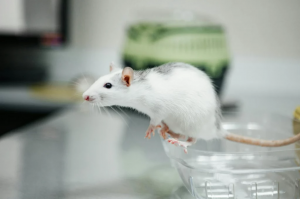New Study Explores Possible Link Between Gut Health and Autism Development
A growing body of research has highlighted the important role that the gut microbiome — the community of microorganisms living in our digestive tract — plays in overall health.
From mental well-being and immune function to conditions like rheumatoid arthritis and type 1 diabetes, the influence of gut bacteria is far-reaching.
Now, a recent study published in The Journal of Immunology offers fresh insights into a possible connection between the microbiome and autism spectrum disorder (ASD).
🧠 What Is Autism?
According to the World Health Organization (WHO), autism is a diverse group of conditions related to brain development, affecting communication, social interaction, and behavior.

People with autism often experience additional conditions such as epilepsy, anxiety, depression, and ADHD. Intellectual abilities vary widely among individuals on the spectrum.
🔬 The Study: How Gut Bacteria May Influence Brain Development
Researchers at the University of Virginia School of Medicine, led by John Lukens, PhD, suggest that a mother’s gut microbiome during pregnancy may play a significant role in a child’s risk of developing autism.
“The microbiome is really important to the calibration of how the offspring’s immune system is going to respond to infection, injury, or stress,” Lukens explained.
A key factor in this process is interleukin-17a (IL-17a) — a molecule produced by the immune system.
IL-17a is already known to play a role in conditions like psoriasis and multiple sclerosis and helps defend the body from certain infections.
However, it also appears to influence brain development during pregnancy.
🐁 How the Study Was Conducted
The study was performed on mice with differing types of gut bacteria.
One group had bacteria linked to stronger inflammation caused by IL-17a, while the control group did not.

-
When IL-17a was blocked, both groups of mice developed typically.
-
But later, without interference, the first group began showing autism-like behaviors such as repetitive movements.
Further experiments involved fecal transplants from the first group to the second group of mice.
After receiving the transplant of pro-inflammatory gut bacteria, the second group also developed autism-like behaviors.
⚠️ What This Means for Humans
While these results are promising, it’s important to note that this research has only been conducted in mice so far. Scientists caution that further studies are needed to confirm whether these findings apply to humans.
“In terms of translating our work to humans, I think the next big step would be to identify features of the microbiome in pregnant mothers that correlate with autism risk,” Lukens said.

Blocking IL-17a might seem like a possible solution, but experts warn it could pose risks, especially during pregnancy, when the immune system plays a critical role in protecting the developing baby.
Researchers are now working to identify safer ways to potentially modulate the microbiome.
✅ Conclusion
While this study doesn’t provide definitive answers yet, it highlights the important role maternal gut health could play in neurodevelopment. It also opens new avenues for research into preventive strategies for autism spectrum disorder.
As research progresses, scientists hope to uncover safer, more effective ways to support both maternal health and healthy brain development in children.
📌 Sources: The Journal of Immunology | World Health Organization | University of Virginia School of Medicine




























